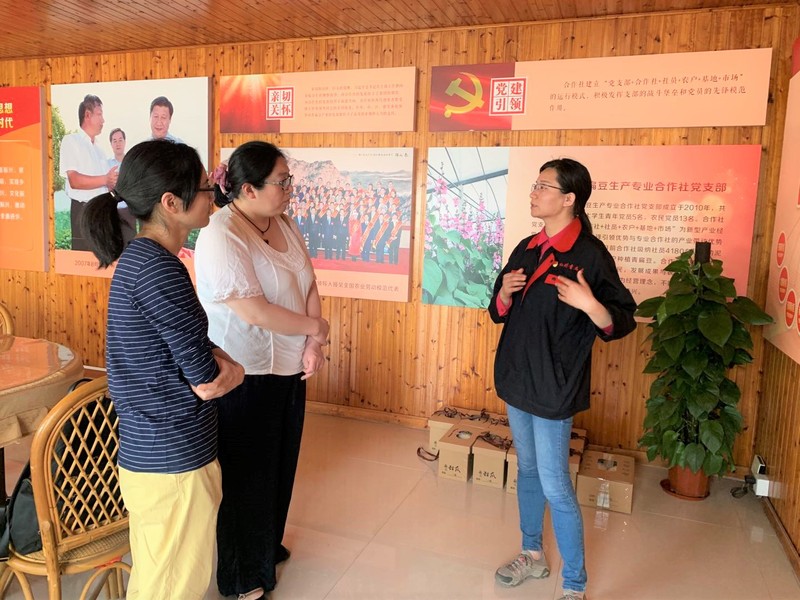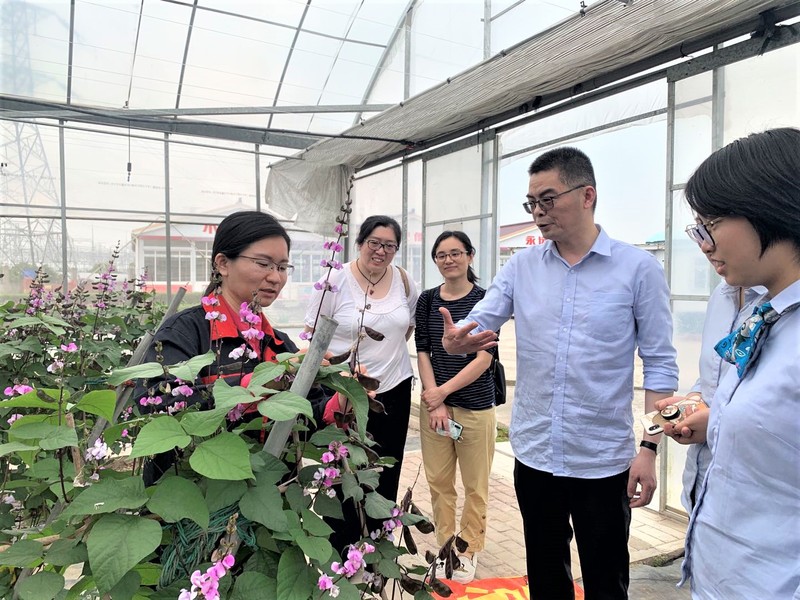On May 15, Executive Dean E Wu of JIAST, associate professor Xin Li of the Nanotech Center, and Mengyao Qin of JIAST, visited the Shanghai Honggang green hyacinth bean cooperative. Shanghai Honggang green hyacinth bean cooperative is a famous hyacinth bean production base in China.
We know that with the development of agricultural industrialization, the production of agricultural products increasingly depends on exogenous substances such as pesticides, antibiotics and hormones. The unreasonable use of these substances will lead to excessive pesticide residues in agricultural products and affect the safety of consumers. The purpose of this investigation is to know about the current situation of pesticide residue detection technology in China and the demand for pesticide residue detection reagents in the agricultural market.
General manager Lina Wang of Honggang cooperative introduced the situation of the cooperative to the delegation and had an in-depth exchange with Dean Wu. Manager Wang pointed out that although there are many kinds of pesticide residue detection methods and the detection speed has been greatly improved, it still takes about 45 minutes to detect a sample at present. So the majority of farmers still urgently need more efficient, faster and cheaper detection reagents. Dean Wu and Professor Li also pointed out that they are currently exploring ultra-sensitive detection technology of food borne pathogen. They put forward a new idea of using microfluidic chip technology to measure and deal with pesticide residues and food borne pathogens, and hope to provide new technical support for pesticide residues detection.




